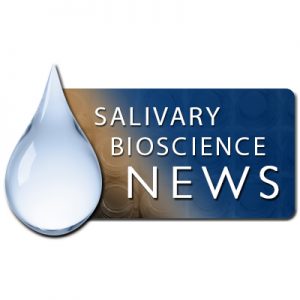The Role of Salivary Bioscience in the Social Neuroscience of Human-Animal Interaction (HAI)
May 20, 2016Ch. 9 – Advancing the Social Neuroscience of Human-Animal Interaction: The Role of Salivary Bioscience Author: Dreschel and Granger (2016), The Social Neuroscience of Human–Animal Interaction There have been recent calls to increase the number of sound scientific studies, including the integration of valid and repeatable biobehavioral measures of both short- and long-term effects. Technical […]
Salivary cortisol and the effects of child care on development in high & low risk contexts
May 10, 2016Child Care and Cortisol Across Infancy and Toddlerhood: Poverty, Peers, and Developmental Timing Author: Berry, et al (2016), Family Relations Evidence suggests that relations between child care and children’s development—behaviorally and physiologically—likely differ between children from high- versus low-risk contexts. Using 1,155 participant data from the Family Life Project, the authors tested (a) whether within- […]
Review: How negative parent-child relationships affect the biological stress system
May 4, 2016Family relations, stress, and vulnerability: Biobehavioral implications for prevention and practice Author: Ha, et al (2016), Family Relations Developmental psychobiology research supports the hypothesis that individual differences in biological stress systems that are sensitive to environmental experiences are associated with individual adjustment problems. Negative social experiences, especially in family contexts, contribute to the dysregulation of […]
Early adversity contributes to lower latent trait salivary cortisol (LTC) levels in adolescence
April 26, 2016Individual differences in early adolescents’ latent trait cortisol (LTC): Relation to early adversity Author: Stroud CB, et al (2016), Developmental Psychobiology Substantial evidence suggests that youth who experience early adversity exhibit alterations in hypothalamic pituitary adrenal (HPA) axis functioning, thereby increasing risk for negative health outcomes. However, few studies have explored whether early adversity alters […]
Interaction of HPA axis and ANS arousal in youth may predict behavior problems
April 18, 2016Hypothalamic pituitary adrenal activity and autonomic nervous system arousal predict developmental trajectories of children’s comorbid behavior problems. Author: Chen FR, et al (2015), Developmental Psychobiology The combined effects of hypothalamic-pituitary-adrenal (HPA) axis activity and autonomic nervous system (ANS) arousal were examined on developmental trajectories of children’s comorbid internalizing and externalizing problems. Participants included 394 urban […]
In utero infant’s stress response system impacted by mother’s psychological & physiological state
April 12, 2016Developmental origins of infant stress reactivity profiles: A multi-system approach. Author: Rash JA, et al (2016), Developmental Psychobiology This study tested the hypothesis that maternal physiological and psychological variables during pregnancy discriminate between theoretically informed infant stress reactivity profiles. The sample size included 254 women and their infants. Maternal mood, salivary cortisol, respiratory sinus arrhythmia […]
Sympathetic and hypothalamic-pituitary-adrenal asymmetry in generalized anxiety disorder
April 6, 2016Developmental origins of infant stress reactivity profiles: A multi-system approach. Author: Reeves JW, et al (2016), Psychophysiology Physiologic investigations of generalized anxiety disorder (GAD) have skewed toward assessment of the autonomic nervous system, largely neglecting hypothalamic-pituitary-adrenal (HPA) axis variables. Although these systems coordinate, suggesting a degree of symmetry, to promote adaptive functioning, most studies opt […]
Salivary testosterone / salivary cortisol ratio may predict a team player’s social popularity
March 18, 2016Long-term stability of diurnal salivary cortisol and alpha-amylase secretion patterns Author: Ponzi D, et al (2016), Psychoneuroendocrinology This study tested whether testosterone and cortisol interacted in predicting social network centrality. The sample size consisted of 41 male rugby athletes from Burnaby, Canada. Using social network analysis (SNA), three measures of centrality were investigated: popularity (i.e., […]
Maternal distress alters salivary cortisol, affecting the neuroendocrine-immune network in children
February 29, 2016Maternal distress and child neuroendocrine and immune regulation. Author: Riis JL, et al (2015), Social science & medicine. This paper examined the extent to which maternal psychological well-being moderates neuroendocrine-immune relations in children. From 2011 to 2013, 125 mothers and their five-year old children were studied in Baltimore, Maryland. Significant cytokine × maternal distress interactions […]
Differences in Salivary Cortisol and Testosterone may guide social network dynamics
February 5, 2016Cortisol and testosterone associations with social network dynamics Author: Kornienko, et al (2015), Psychoneuroendocrinology. This study integrates behavioral endocrinology and network science to explore links between hormones and social network dynamics. Specifically, we examine how cortisol (C) and testosterone (T) are associated with creation of new friendships and maintenance of existing friendships. A collegiate marching […]
 Contact: Salimetrics (USA)
Contact: Salimetrics (USA)
